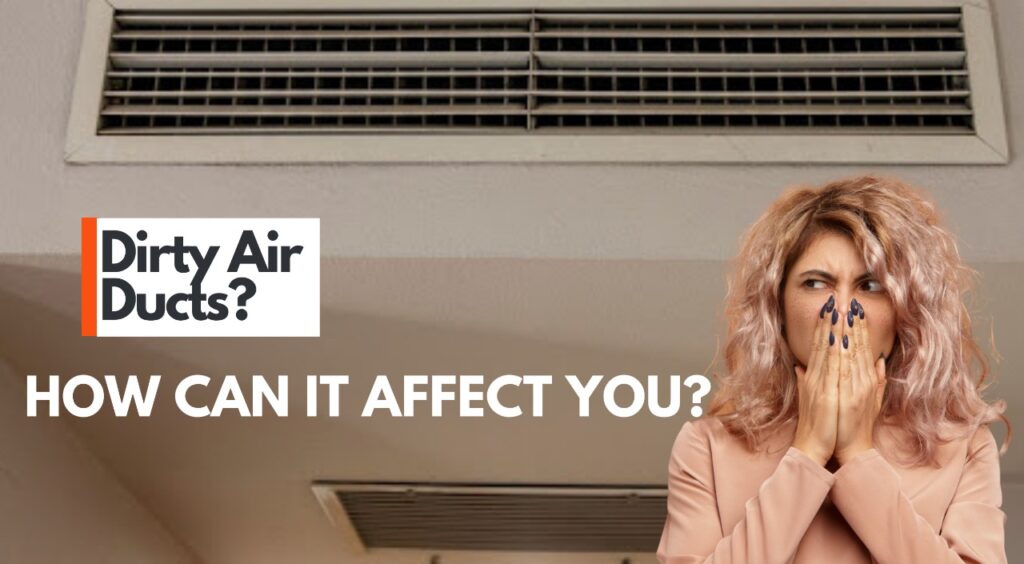Do you suffer from allergies or respiratory problems? Have you noticed a persistent musty odor in your home or office? If so, your air ducts may be to blame. Dirty air ducts can have a significant impact on indoor air quality and can even affect your health. In this article, we’ll explore the health effects of dirty air ducts and what you can do about them.

Health effects of dirty air ducts
Dirty air ducts can have several negative health effects, including:
- Respiratory problems: The most common health effect of dirty air ducts is respiratory problems. When air ducts become contaminated with dust, pollen, and other allergens, these particles can be blown into your living or working space and can trigger respiratory problems such as asthma, allergies, and bronchitis.
- Infections: Dirty air ducts can also harbor bacteria and viruses, which can cause infections that can affect your respiratory system. In addition, if you or someone in your household has a weakened immune system, they may be more susceptible to these infections.
- Headaches and fatigue: Poor indoor air quality can also cause headaches, fatigue, and other symptoms that can affect your productivity and quality of life. Also, this can be particularly problematic if you work or spend a lot of time in a building with dirty air ducts.
- Skin irritation: If your air ducts are contaminated with mold or mildew, these spores can get into the air and cause skin irritation and other allergic reactions.
- Odors: Dirty air ducts can also cause unpleasant odors in your home or office. This can be particularly problematic if you are sensitive to smells or have guests who are.
What can you do about dirty air ducts?
First, if you suspect that your air ducts are dirty, the first step is to have them inspected by a professional. A professional air duct cleaning service can inspect your ducts and determine if they need to be cleaned. If they do, the service will use specialized equipment to remove contaminants from your air ducts and improve your indoor air quality.
In addition to professional air duct cleaning, there are several other steps you can take to reduce the risk of dirty air ducts:
- Change your air filters regularly: Changing your air filters regularly can help prevent the buildup of dust and other contaminants in your air ducts.
- Keep your home or office clean: Regular cleaning can help reduce the amount of dust and other contaminants in your indoor air.
- Use an air purifier:An air purifier can help remove contaminants from your indoor air, reducing the amount of dust, pollen, and other allergens that can accumulate in your air ducts.
- Maintain proper ventilation: Proper ventilation can help improve indoor air quality and prevent the buildup of contaminants in your air ducts.
- Seal air leaks: Leaks in your air ducts can allow contaminants to enter your living or working space. Sealing leaks can help prevent this from happening.
Conclusion
Dirty air ducts can have a significant impact on indoor air quality and can even affect your health. Respiratory problems, infections, headaches, fatigue, skin irritation, and unpleasant odors are all potential health effects of dirty air ducts. If you suspect that your air ducts are dirty, it’s important to have them inspected by a professional air duct cleaning service. In addition, taking steps to maintain proper ventilation, change your air filters regularly, and use an air purifier can help reduce the risk of dirty air ducts and improve your indoor air quality.

